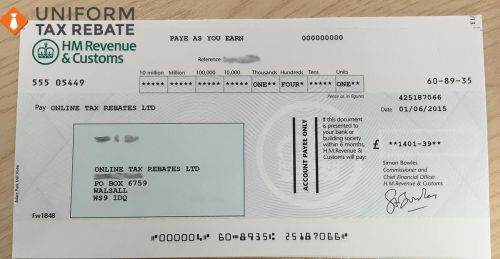Claim Tax Relief For KFC Work Uniform & Clothes

One of the results of being employed in a fast-food restaurant is the requirement to wash your clothes after your shift has ended. Working in a hot environment where oil and grease is used to fry food can mean that it’s difficult to remove cooking odours – a washing machine cycle using standard laundry detergent is not always enough.
If you’re a customer, the aroma of frying chicken at KFC can be delicious, tempting you to come in and buy, but employees exposed to hot fryers for hours on end have been forced to try a number of different solutions to clean their uniforms, including soaking them in water with ammonia or vinegar added.
Washing your workplace clothes at home may feel like a thankless task, but there’s some good news: if you wear a uniform or protective clothing and you have to launder these items yourself, you may be due a tax refund from HMRC. Many workers are currently missing out on the opportunity to claim, and this is particularly true of staff employed by major UK fast-food outlets such as KFC.
HMRC’s definition of a “uniform” is any item of clothing that you could not reasonably be expected to wear out in the street, in your own time. That includes clothes with a workplace logo sewn in, high visibility jackets or special safety shoes. Millions of pounds of tax relief may be owed to workers who are washing their own workplace clothing and although thousands have already made successful claims, many more are unaware that they may be eligible.
HMRC has set an allowance for employees to claim tax relief on the cost of laundering and maintaining uniforms.
Use the handy online calculator to enter your details and make a claim within five minutes, with no charge if your claim is not accepted.
Whether you work for KFC or any major fast food restaurant, it’s always a big effort to soak, wash and iron your uniform at the end of a long working day. It’s estimated that two out of three workers who wear a uniform at work are entitled to a Uniform Tax Rebate, so don’t miss out on money that is rightfully yours.
Each tax year will be recalculated if you enter a claim. This often identifies other overpayments due to incorrect tax codes, multiple employments, ceasing of job, etc. In these cases we can identify a much larger tax rebate. We regularly identify rebates of over £1,000 for customers who were originally estimated a lower amount.
If you claim now you will receive tax relief for the current tax year and future years that allowances continue to apply, paid through your monthly pay, no charge will be made on future tax relief or refunds.
You don't need to make any upfront payment to us in order for us to check if you are due a rebate.
We will ensure that your current year reliefs are correct and that your future year allowances are adjusted in line with the current year to ensure you are no longer being overtaxed. There will be no charge calculated for amending your current tax code and you will receive any tax refunds due in the current year and in future years directly.
If you are due a refund in the 4 previous tax years we will receive that refund from HMRC on your behalf and deduct charges in accordance with those quoted on the website prior to making a payment to you.
Standard deduction is 30% + £30, plus VAT, where due on any refund payment HMRC send us before passing payment on to you. Charges are limited to the previous 4 tax years we check and we will not make any deduction on future tax refunds.
If no refund is due the service is FREE to use. If a refund is due standard pricing is 30% + £30, plus VAT, where due on any refund payment HMRC send us before passing payment on to you. The charge is levied on all refunds received from HMRC covered by the claim period (4 previous years) regardless of reason. When entering a claim you agree to legally and unconditionally assign the rights to any refund for the previous 4 years to OTR, when payment is made to us we will forward the residual balance to you net of our agreed fees. On receipt of the form HMRC will manually reconcile (calculate) your tax liability for each year of your claim. If unreconciled differences are present on your taxpayer record for any year these differences may positively or negatively effect your tax liability on top of the effect of any allowances or expenses claimed for. HMRC perform a more basic automatic reconciliation on taxpayer records from April to November in the tax year following the end of each tax year. By submitting your claim you forgo the rights to any benefits that may have been accrued as a result of HMRC performing an automatic reconciliation, from the date your form is received by HMRC.

